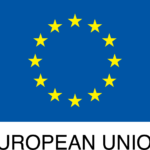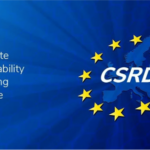
In a critical stage of the negotiations on the Omnibus Simplification package, EFAMA, Eurosif, and PRI join forces to call for a credible and proportionate voluntary sustainability reporting standard for companies with over 250 employees that will fall outside of the CSRD scope. This minimum voluntary standard would allow financial institutions, including investors, to access meaningful sustainability-related information crucial for their investment decisions.
Why does it matter?
ESG data is essential for informed investment decisions and assessing sustainability risks. However, the European Commission’s current proposal risks excluding many companies already reporting under the Non-Financial Reporting Directive (NFRD)/CSRD, creating data gaps and market fragmentation. In addition, the use of the Voluntary Standard for SMEs (VSME) as a basis for non-SME voluntary reporting is not fit for purpose. Designed for micro, small, and medium enterprises (less than 250 employees), the VSME lacks the granularity and reliability needed for reporting to larger companies and financial market participants as users of information. Its application as a value chain cap may further restrict the information available to investors.
Our recommendations
To ensure that investors have access to meaningful, decision-useful ESG data across a wide range of companies and their entire value chain, our organisations suggest that the voluntary reporting standard should be grounded in the revised European Sustainability Reporting Standards (ESRS). This initiative aims to provide proportionate and scalable requirements that enable companies—particularly growing businesses—to gradually transition toward mandatory sustainability reporting. By enhancing the comparability, reliability, and usability of both voluntary and mandatory ESG disclosures, the standard will help close critical data gaps and foster greater transparency. Ultimately, this fit-for-purpose framework will support the growth of sustainable finance, empower informed investment decisions, reduce greenwashing risk, and ensure continued access to capital for European businesses navigating the evolving regulatory landscape.
Ilia Bekou, EFAMA Regulatory Policy Advisor, commented: “Our proposal to EU legislators for a voluntary standard aims to ensure comparability and reliability of sustainable disclosures, support a smoother transition to mandatory reporting, and foster financing opportunities and market growth for EU companies.”
Pierre Garrault, Eurosif Senior Policy Advisor, commented: “By reducing the scope of companies subject to mandatory sustainability reporting by over 80%, the Omnibus initiative risks leaving investors in the dark. A voluntary bespoke standard for small and mid-caps is essential to narrow ESG data gaps and support informed investment decisions and risk management.”
Elise Attal, PRI Europe Policy Head, commented: “Investors need decision-useful sustainability information to guide their capital allocation decisions. A fit-for-purpose voluntary standard for the companies that will no longer report under CSRD, due to its scope change, will be important. This would limit ad-hoc requests for sustainability data that companies receive from investors and ensure their access to sustainable finance.”




